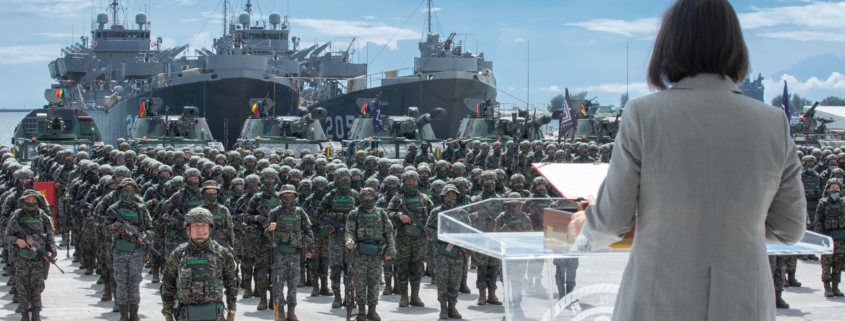Securing Taiwan Requires Immediate Unprecedented Cyber Action
The prospect of a Chinese invasion of Taiwan echoes some of the most disastrous 20th century instances of great power expansion—reminiscent, perhaps, of Nazi Germany’s Anschluss or even its subsequent invasion of Poland. Given that the latter ignited World War II, America’s strategic community has been rightly fixated on the vast military and political contingencies of a Chinese invasion that would remake Asia.
But Taiwan is not just the geopolitical fulcrum of the Indo-Pacific; it is also the nexus of a rapidly evolving Sino-American technological competition. And if 20th century great power competition is any guide, tech races are just as important to long-term competition as territorial military contests. The U.S. needs to act now to secure the technological dimensions of a looming Taiwan crisis, or risk losing far more than the island.
In the domain of Sino-American tech rivalry, Taiwan is unique in two aspects: First, the Taiwan Semiconductor Manufacturing Corporation (TSMC) remains the world’s tightest bottleneck in the global high-tech ecosystem, with exclusive capabilities to construct the most valuable, sophisticated computer chips in existence. Second, military conflagration in Taiwan would represent a hitherto-unknown level of cyber-intensive military conflict, the seeds of which likely have already been planted. Both of these realities demand unprecedented cooperation between the United States and Taiwan—cooperation that requires significant trust and openness in Taipei and significant counter-espionage and national security assistance from Washington.
The Silicon Brain Trust
It’s hard to overstate the importance of TSMC’s microscopic transistors: The company’s chips are the foundation of enormous sectors of national economic growth for both the U.S. and China. They are also the backbone of the massively consequential tech race between the two countries in security-essential sectors like artificial intelligence, quantum computing and advanced military capabilities. TSMC is estimated to have cornered as much as 90 percent market share of the world’s most advanced processors, and controls a majority of the global market for made-to-order chips. To…


